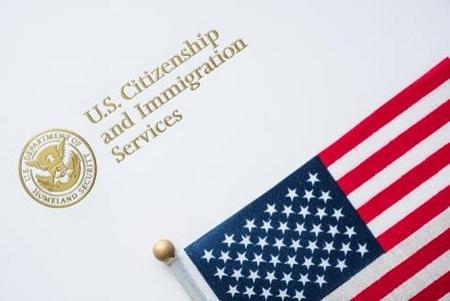USCIS Implements New Public Charge Rule for Immigrants
 The U.S. Department of Homeland Security (DHS) recently implemented the Inadmissibility on Public Charge Grounds final rule. As of February 24, 2020, the U.S. Citizenship and Immigration Services (USCIS) is mandating this implementation of its new Public Charge Rule across the United States. The new rule requires that a set of circumstances be applied to make a proposed determination of whether an intending immigrant is likely to become a “public charge” at any time after admission to the United States. This means the Intending Immigrant must demonstrate that he or she is capable of being financially independent in the United States after receiving residency. All Adjustment of Status applicants are subject to the new rule, although there are a few exceptions, including refugees, asylum seekers, U and T visa applicants, as well as special juvenile immigrants and interpreters.
The U.S. Department of Homeland Security (DHS) recently implemented the Inadmissibility on Public Charge Grounds final rule. As of February 24, 2020, the U.S. Citizenship and Immigration Services (USCIS) is mandating this implementation of its new Public Charge Rule across the United States. The new rule requires that a set of circumstances be applied to make a proposed determination of whether an intending immigrant is likely to become a “public charge” at any time after admission to the United States. This means the Intending Immigrant must demonstrate that he or she is capable of being financially independent in the United States after receiving residency. All Adjustment of Status applicants are subject to the new rule, although there are a few exceptions, including refugees, asylum seekers, U and T visa applicants, as well as special juvenile immigrants and interpreters.
A Two-Fold Determination
When foreign nationals enter the United States, they are expected to become self-sufficient under immigration law. This applies whether they come on a temporary basis for work or a permanent basis to live. Essentially, aliens must rely on their own competence and assistance from relatives, friends, and private institutions instead of public benefits.
According to the final rule, public benefits include any monetary funds for income maintenance, some forms of Medicaid, and specific housing programs. It may also include Supplemental Security Income, Temporary Assistance to Needy Families, and Supplemental Nutrition Assistance Program.
USCIS will look at each case individually to determine whether the intending immigrant is likely to become a public charge at any time. This determination is two-fold: The first is whether the intending immigrant has in the past received a qualifying public benefit and the second is whether at any time in the future the Intending Immigrant is likely to receive a public benefit.
Under the new rule, there are several factors that the adjudicators will analyze in order to determine whether the intending immigrant is likely to become a public charge in the future.
The seven factors are:
- Age
- Health
- Family status
- Assets, resources, finances
- Education and skillset
- Prospective immigration status and expected period of admission
- Affidavit of Support (a sponsor accepts financial responsibility for the applicant)
Contact an Illinois Immigration Attorney
U.S. immigration laws are changing based on the current White House administration’s national security objectives. If you or your loved one is considering immigrating to the United States, it is crucial that you obtain legal representation to ensure a seamless process. The accomplished legal team at the Mevorah & Giglio Law Offices know the latest changes to immigration laws, including the new Public Charge Rule, and how they may impact your situation. Call one of our skilled Illinois immigration lawyers today at 630-932-9100 to schedule your free and confidential consultation.
 English,
English,
 Spanish,
Spanish,
 Polish,
Polish,
 Urdu
Urdu













 Make a Payment
Make a Payment



